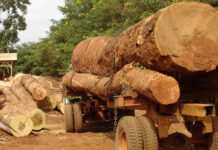Ghana’s waste management system stands at a critical crossroads. Urban centres such as Accra and Kumasi are overwhelmed by mounting piles of rubbish, with over 1.1 million tons of waste generated annually – yet only a fraction is properly managed1,2.
The consequences are severe: overflowing landfills, polluted water bodies, rampant disease outbreaks, and frequent urban flooding due to clogged drainage systems1,2.
As the nation’s population and urbanisation rates continue to soar, the need for innovative, scalable solutions has never been more urgent.
The Challenge of Inefficient Collection, Poor Sorting, and Public Health Risks
The scale of Ghana’s waste management problem is staggering. According to recent studies, the country generates approximately 12,710 tons of solid waste daily, but only about 10 percent is collected and disposed of at designated sites3.
The rest accumulates in open dumps, streets, and water bodies, fueling the spread of diseases like cholera and contaminating vital water sources1,2. In Accra alone, more than 3,000 tons of waste are produced every day, much of which remains uncollected4.
Several factors compound the crisis:
- Outdated and Inefficient Infrastructure: Waste collection systems are often labor-intensive, poorly coordinated, and rely on fixed routes that do not match real-time needs1,3. Landfills are nearing capacity and are typically unmanaged, leading to environmental hazards1,2.
- Weak Governance and Funding Gaps: Municipal authorities spend up to 70 percent of their budgets on waste management, yet still fall short due to underfunding, weak enforcement of regulations, and poor stakeholder coordination1,3,5.
- Low Public Participation: Indiscriminate dumping and minimal community engagement are widespread, with nearly 23 percent of households lacking adequate sanitation facilities4. Public awareness campaigns and community involvement in waste management remain underdeveloped5.
- Environmental and Health Consequences: Poor waste management is directly linked to the spread of diseases, urban flooding, and environmental degradation1,2.
How Computer Vision AI Can Transform Waste Management in Ghana
Amid these daunting challenges, Artificial Intelligence – especially computer vision – offers a powerful, data-driven approach to revolutionise Ghana’s waste management landscape.
What is Computer Vision AI?
Computer vision is a branch of AI that enables machines to interpret and process visual information from the world (i.e., images and videos), much like the human eye, but with far greater speed and accuracy. In waste management, computer vision systems use cameras and advanced algorithms to identify, classify, and sort different types of waste in real-time6,7.
Applications in Ghana’s Context
Automated Waste Sorting
Traditional waste sorting in Ghana is manual, slow, and prone to errors. Computer vision AI can be deployed at material recovery facilities (MRFs) to scan and identify waste items on conveyor belts.
The system recognises and categorises plastics, metals, paper, and organic materials, then directs robotic arms or human workers to sort them accordingly6,7,8. This technology can achieve sorting accuracy rates of up to 95 percent, far surpassing manual methods6,7,8.
Smart Collection and Monitoring
AI-powered cameras and sensors can be installed in public bins and collection points to monitor fill levels and detect contamination or illegal dumping4,8. The data feeds into centralised systems that optimise collection routes, ensuring trucks are dispatched only when bins are full, reducing unnecessary trips, fuel costs, and emissions.
Data-Driven Insights for Policy and Planning
Computer vision systems generate vast amounts of data on waste types, volumes, and collection patterns.
This information enables municipal authorities and private companies to make evidence-based decisions, allocate resources efficiently, and plan targeted public education campaigns6. For example, identifying neighborhoods with high rates of plastic waste can inform recycling initiatives or policy interventions.
Enhancing Recycling and Circular Economy Initiatives
By accurately identifying recyclable materials, computer vision AI boosts recovery rates and reduces contamination, making recycling operations more viable and profitable. This supports Ghana’s transition towards a circular economy, where waste becomes a resource rather than a liability1,2.
Benefits of Computer Vision AI for Ghanaian Waste Management
Improved Sorting Accuracy and Efficiency
Computer vision AI systems can process and sort waste continuously, handling far greater volumes than human workers and reducing error rates6. This leads to higher-quality recyclables, lower contamination, and less waste ending up in landfills.
Cost Savings and Operational Efficiency
Optimised collection routes and automated sorting reduce labor costs, fuel consumption, and equipment wear. In cities like Copenhagen, similar AI-powered systems have cut waste collection costs by up to 50 percent – a model Ghanaian cities could emulate4,8.
Enhanced Environmental and Public Health Outcomes
By increasing recycling rates and reducing landfill use, AI-driven systems help mitigate pollution, prevent flooding, and lower the risk of disease outbreaks. Cleaner streets and waterways contribute to healthier communities and a more attractive urban environment1,2,4.
Data-Driven Governance and Transparency
The detailed data produced by computer vision AI enables authorities to monitor progress, identify bottlenecks, and adjust strategies in real time. This transparency can foster greater accountability and public trust in waste management systems6.
Empowerment of Public-Private Partnerships
AI solutions require investment and technical expertise, making them ideal for public-private collaborations. The government can provide policy frameworks and infrastructure, while private companies deliver innovation and capital, accelerating the adoption of advanced waste management technologies1,2.
Wrapping Up
Ghana’s waste management crisis is a complex challenge, but it is also an opportunity for bold innovation and a pathway to a cleaner, smarter Ghana.
By embracing computer vision AI, waste management companies and municipal authorities can transform how waste is collected, sorted, and recycled – turning a public health hazard into a driver of sustainable development.
The road ahead requires investment, strong governance, and robust public-private partnerships.
It also demands community engagement and education to change entrenched behaviors. If these elements come together, Ghana can not only tackle its waste crisis but also set a benchmark for smart, sustainable urban management in Africa.
The future of waste management in Ghana is not just about cleaning up. It’s about building a resilient, data-driven system that creates value from waste, protects public health, and paves the way for a greener, more prosperous nation1,2,4,6.
References:
- https://www.myjoyonline.com/turning-trash-into-treasure-in-ghana-a-public-private-sector-collaboration-in-an-ai-enhanced-recycling-environment-for-a-sustainable-future/
- https://www.theghanareport.com/turning-trash-into-treasure-in-ghana-a-public-private-sector-collaboration-in-an-ai-enhanced-recycling-environment-for-a-sustainable-future/
- https://pmc.ncbi.nlm.nih.gov/articles/PMC7951920/
- https://www.myjoyonline.com/sanitation-and-how-ai-can-harness-it-a-pathway-to-a-cleaner-ghana/
- https://www.fepbl.com/index.php/ijarss/article/view/1791
- https://www.sortedtech.io/post/key-benefits-of-computer-vision-for-waste-management
- https://recycleye.com/computer-vision-evolved-role-waste-sorting/
- https://www.myjoyonline.com/sanitation-and-how-ai-can-harness-it-a-pathway-to-a-cleaner-ghana/
*********************************
TAKE 5 WITH AYA
Here are five key takeaways from this article:
- AI enables accurate demand forecasting, helping businesses prevent stockouts and Ghana’s waste crisis demands urgent innovation, as only 10 percent of daily waste is properly collected and managed.
- Computer Vision AI can automate waste sorting, achieving up to 95 percent accuracy, far surpassing manual methods.
- Smart AI-driven monitoring optimises waste collection routes, reducing fuel use, costs, and environmental impact.
- AI-powered data insights empower better policy planning, public education, and resource allocation in waste management.
- Public-private partnerships are crucial to accelerate AI adoption and modernise Ghana’s waste infrastructure.
Dr. Hammah is the Chief Marketing Officer at Aya Data, a UK & Ghana-based AI consulting firm, that helps businesses seeking to leverage AI with data collection, data annotation, and building and deploying custom AI models. Connect with her at [email protected] or www.ayadata.ai.










